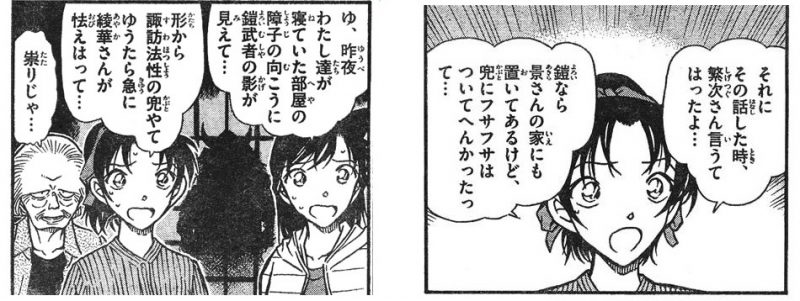Kansai-ben [関西弁] is a group of Japanese dialects from the Kansai region that encompasses Osaka, Kyoto, Nara, Shiga and other provinces. This region has the second most popular dialect in Japan, second only to Kanto.
Nowadays it is common to see and associate the Kansai dialect (especially Osaka) with comedy, being used as something funny in many anime, games, dramas, etc.
While most associate the Osaka dialect with the Kansai dialect of the entire region, technically, each province in the region has a particular dialect, and residents take pride in their small, particular differences. In this article we will see especially from Osaka and that of Kyoto.
Índice de Conteúdo
Examples of Kansai dialect changes
Below is a list of changes that happen between traditional Japanese and Kansai dialect.
Responsive Table: Scroll the table sideways with your finger >>
| Traditional Japanese | japanese romaji | Kansai-ben | Kansai-ben romaji |
| ありがとうございます | arigatou(gozaimasu) | おおきに ありがとうさん | ookini / arigatousan |
| おはようございます | ohayou(gozaimasu) | おはようさん | ohayousan |
| 本当 | hontou | ほんま | honor |
| よ! | yo | で! | in! |
| 本当だよ! | hontoudayo! | ほんまやで! | honor! |
| そうだ | I'm of | せや | seya |
| いくら | ikura | なんぼ | nanbo |
| じゃあ | jyaa | ほな | honor |
| いい | ii | ええ | and is |
| だめ | Give me | あかん | akan |
| ということは | toiukotowa | っちゅうことは | ttchyuukotowa |
| ということだ | toiukotoda | ちゅうこっちゃ | Chuukotcha |
| だろう | gave | やろう | yarou |
| ね | ne | な | na |
| 知ってる | Shitteru | 知っとる | Shitoru |
| 京都へ行きます | Kyoto and Ikimasu | 京都へ行ってはる | Kyoto and Itte Haru |
Responsive Table: Scroll the table sideways with your finger >>
| Kansai | Tokyo | Portuguese |
| bye Akan Mecha wakarahen oh | chicago lady Tottemo wakaranai baka | Different / Wrong Not good / Can't Much I don't understand Idiot |
Responsive Table: Scroll the table sideways with your finger >>
| impolite | informal | polished - desu | Polished - chamaimasu | Formal | |
|---|---|---|---|---|---|
| Osaka | ja | yes | dasu | from omasu | from gozaimasu |
| Kyoto | dosu | from osu |
| Termination | to use | To see | Eat | do | Come over | form yourself |
|---|---|---|---|---|---|---|
| original verb | tsukau | miru | taveru | do | kuru | -have-u |
| -naharu | tsukainaharu | minasharu | tabenaharu | shinaharu | kinaharu | -tenaharu |
| -haru in Kyoto | tsukawaharu | miharu | tabeharu | shiharu | kiharu | -taharu |
| -haru in Osaka | tsukaiharu | -teharu | ||||
| -yaharu | miyaharu | tabeyaharu | shiyaharu | kiyaharu | -teyaharu | |
| get you | tsukoote ya | mite ya | tablet ya | shite ya | kite ya | -totte ya |
Fun facts about Kansai-ben
- Em Kyoto, the word です can become どす
- The verb: tsukau (use) becomes tsukawan, tsukawahen and tsukaehen.
- The verb: miru (see) becomes min, miyahen, meehen and miihin
Researching and writing about Kansai dialect is complex and complicated, there is much more information about Kansai dialect than Fukuoka dialect. Really explaining all the details and curiosities of a dialect is kind of complicated, there is a website specialized only in the Kansai dialect, you You can access it by clicking here.
If you watch the Detective Conan anime you will surely notice the difference between dialects and the Kansai dialect, one of the important characters in the Hattori Heiji series is from Kansai and we can immediately notice the difference in language. If you can read a little kanji, check out the strip below showing Hattori's friend to Kazuha speaking in Kansai dialect.

What do you think of the Kansai-ben dialect? Did you like the article? If you liked it, leave your comments and share it with your friends. Thank you and until the next article.
Read also: The History of Soccer in Japan





